The 19th Hole: Legal Insights
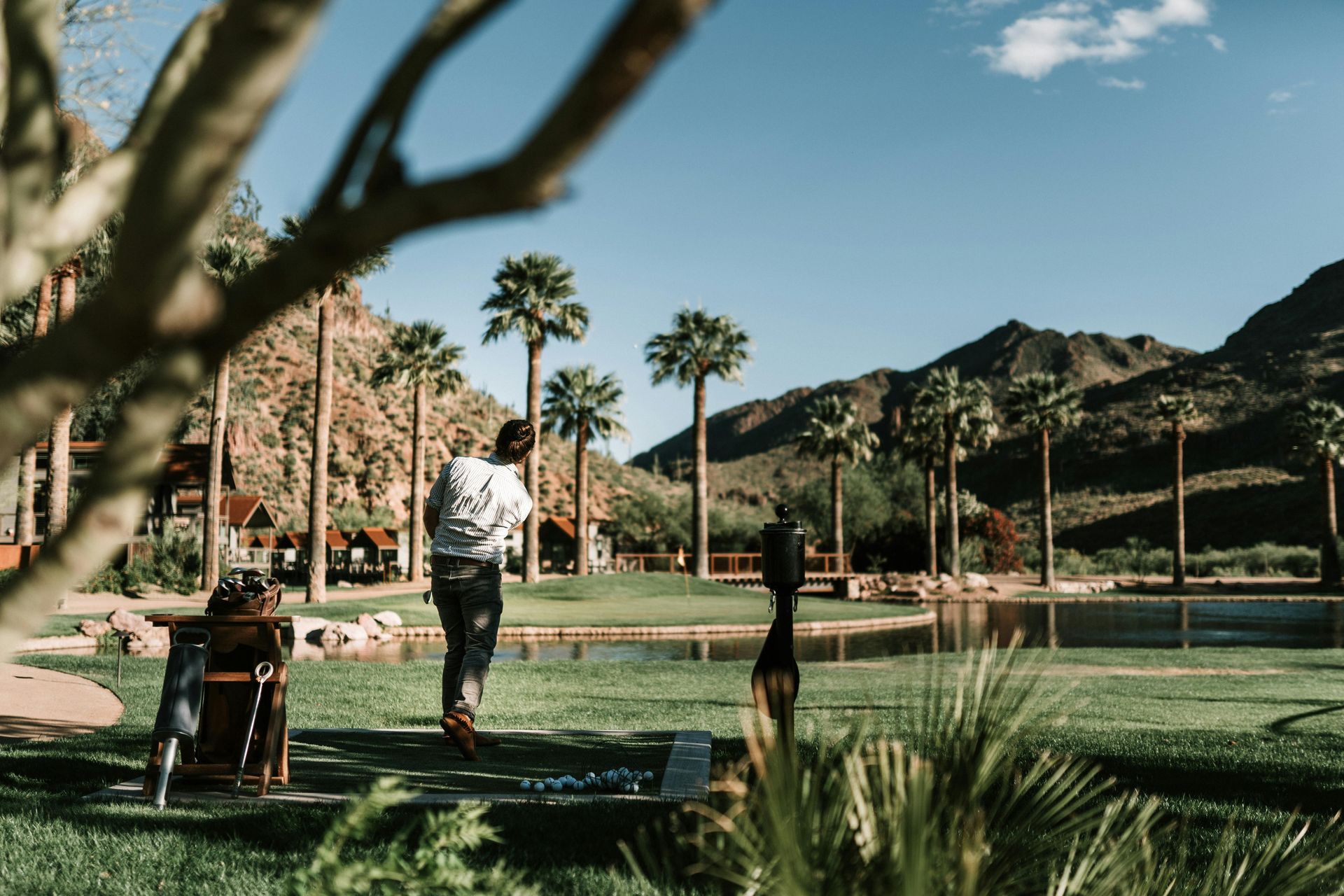
For many international student-athletes, college golf in the United States is not just a path to a degree—it’s a launching pad to a professional career. But for international golfers studying under an F-1 student visa, making the leap from college athlete to professional competitor requires careful planning, legal awareness, and smart timing. The transition isn’t automatic, and without the right strategy, it could mean sitting out of key events—or worse, facing immigration violations. Understanding the F-1 Student Visa The F-1 visa allows international students to pursue full-time academic study in the U.S. It also permits limited on-campus work and, in some cases, off-campus employment through Optional Practical Training (OPT) or Curricular Practical Training (CPT). However, F-1 status does not authorize professional competition or prize money earnings, which means student- golfers cannot simply turn pro while still on an F-1 visa. Why the F-1 Visa Limits Professional Play The F-1 is a non-immigrant visa meant solely for education. Competing in professional golf tournaments—especially where prize money or endorsement deals are involved—is considered unauthorized employment if done under F-1 status. Doing so can lead to visa violations, termination of SEVIS records (student status), and possible deportation or bans on re-entry. Step 1: Graduating and Using Optional Practical Training (OPT) After graduation, most F-1 students are eligible to apply for 12 months of OPT, which allows them to work in the U.S. in a field directly related to their degree. For a student-athlete with a degree in sports management, business, or kinesiology, there may be ways to connect their initial professional golf-related activities to their academic background. However, OPT is limited in scope, and not always a clear or long-term solution for athletes wanting to play full-time professional golf. Step 2: Changing to a Professional Athlete Visa (P-1A or O-1) The most direct route for transitioning into a pro golf career is to change visa status from F-1 to a work-based visa such as the P-1A (for internationally recognized athletes) or the O-1 (for individuals with extraordinary ability). These visas allow golfers to legally compete in tournaments, earn prize money, and sign endorsement deals. This transition typically requires a U.S.-based sponsor, such as a tour organizer, agent, or sports management firm. The P-1A visa is often the best fit for recently graduated players with solid amateur records, national team experience, or collegiate accolades. The O-1 visa is more exclusive and is typically reserved for athletes who have already demonstrated significant professional achievements. Planning the Timing of the Transition Timing is critical. Golfers must apply to change their visa status before their F-1 expires or shortly after completing their studies. If there’s a gap between graduation and visa change approval, the player may need to leave the U.S. and re-enter once their new visa is granted—risking delays or missed tournaments. It’s important to work with an immigration attorney to file the right paperwork, preserve legal status, and avoid complications. Can a Golfer "Go Pro" While Still in College? Technically, no—not while on F-1 status. NCAA and university regulations also typically prohibit students from accepting prize money or signing with agents while enrolled. If a student- golfer decides to leave school early and turn professional, they must coordinate a change of immigration status before they can begin competing for pay in the U.S. This is a legal and strategic shift that requires strong documentation, a viable sponsor, and proof of the golfer’s eligibility for a new visa type. The Role of Agents and Legal Counsel For international golfers eyeing the pro circuit, having a sports agent and immigration attorney is essential. Agents can help line up sponsorship or tour affiliations needed for visa sponsorship, while legal advisors ensure the transition is smooth and compliant. Athletes who try to manage this process alone often risk delays, denials, or unintentional violations that can sideline their careers before they start. A Career Move That Demands a Game Plan The journey from international student-golfer to professional athlete in the U.S. isn’t just about talent and ambition—it’s about preparation. Understanding the rules of immigration is as important as knowing the rules of the game. With proper timing, legal support, and strategic planning, F-1 student-golfers can make a successful transition to the pro ranks and continue competing legally and confidently on American soil.
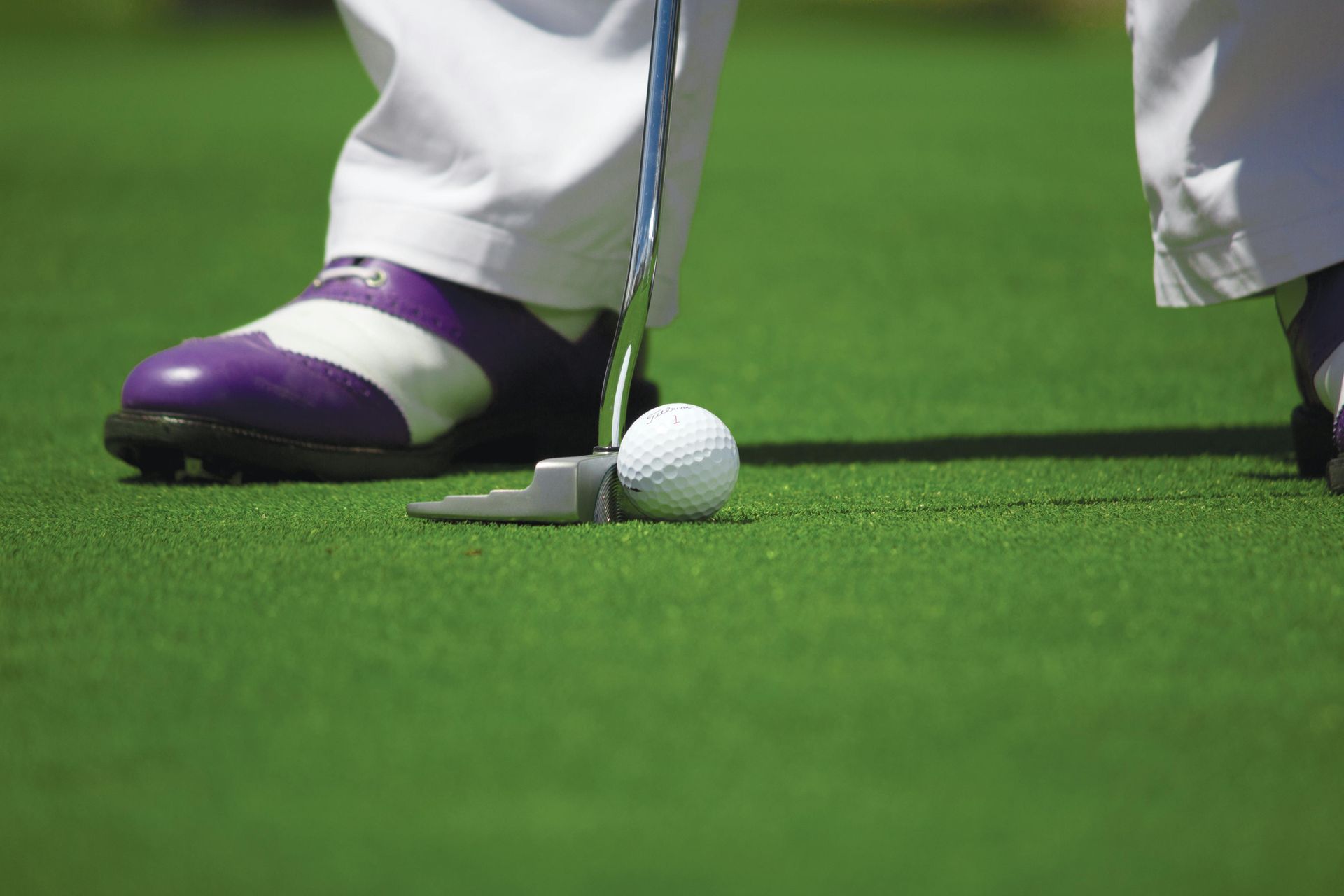
Golf is one of the few sports where an athlete—amateur or professional—can compete for prize money in nearly every event. But when it comes to international players entering the United States, immigration law draws a sharp line between what’s allowed and what isn’t. One of the most misunderstood scenarios involves golfers traveling on a B-1 business visa and participating in tournaments where prize money is at stake. So, what happens if a golfer earns prize money while on a B-1 visa? The answer: it can be a serious violation of U.S. immigration law. Understanding the B-1 Visa and Its Limits The B-1 visa is intended for foreign nationals visiting the U.S. for short-term business purposes. This can include attending meetings, negotiating contracts, or participating in amateur athletic competitions—but not engaging in employment or receiving U.S.-based compensation. For athletes, the B-1 visa may allow limited participation in competitions as long as they are not receiving payment or prize money. The visa is not intended for professional athletes who derive income from events or endorsements while in the U.S. Prize Money = Compensation In the eyes of U.S. immigration law, earning prize money is considered compensation, regardless of whether the player sees it as a reward or honor. If a golfer enters a tournament while on a B-1 visa and receives payment—even indirectly—they may be engaging in unauthorized employment. This includes cash prizes, appearance fees, endorsements, or even receiving lodging or travel benefits tied to performance. Consequences of Violating B-1 Visa Rules If immigration authorities discover that a golfer has violated the terms of their B-1 visa by earning prize money, several consequences may follow: Immediate revocation of the visa Denial of entry at the border or airport Future visa applications being denied Potential multi-year bans from re-entering the U.S. Reputational damage within professional golf circles and among sponsors Even unintentional violations—such as a golfer who didn’t realize they couldn’t accept a check—are still violations under the law. What If the Golfer Doesn’t Accept the Money? Some golfers try to navigate the restriction by declining prize money or having it awarded to a sponsor or agent instead. Unfortunately, this doesn’t always solve the problem. If a golfer knowingly enters a competition offering prize money, it can still be considered a violation—even if they forgo the payout. Immigration officers and consular officials may interpret this as an attempt to work without authorization, especially if the player has a history of competing professionally elsewhere. Alternatives: The Right Visa for the Job For international golfers aiming to compete in paid tournaments, the B-1 visa is not the right tool. Instead, athletes should consider applying for the: P-1A Visa: For internationally recognized athletes competing at a professional level. O-1 Visa: For individuals of extraordinary ability with a proven track record of elite performance. These visas permit athletes to lawfully compete, receive compensation, and engage in sponsorship-related activities. While they require more documentation and a U.S.-based sponsor, they offer long-term benefits and eliminate the legal risks of competing under a visitor visa. Border Scrutiny and Growing Awareness In recent years, U.S. Customs and Border Protection (CBP) has become more vigilant in scrutinizing athletes traveling under B-1 status. With digital records, social media posts, and event coverage, it’s easier than ever for authorities to track competition results and prize payouts. Golfers caught violating visa rules may be flagged in immigration databases, complicating future travel to the U.S. Don’t Let a Paycheck Cost You a Career While the temptation to compete and earn prize money in the U.S. is understandable, doing so under the wrong visa can have career-altering consequences. Golfers and their teams must ensure the visa they use matches the nature of their participation. When in doubt, it’s always better to consult an immigration attorney before stepping onto the first tee. In the game of golf—and immigration—knowing the rules is part of playing smart.

For international golfers competing in the United States, staying in legal immigration status is just as crucial as maintaining their swing. With tightly packed tournament schedules and ongoing commitments, many players wonder: Can I renew my visa without leaving the country? The answer is yes, in many cases—but there are some important caveats and considerations. Understanding "Visa" vs. "Status" First, it’s important to clarify a common point of confusion. In U.S. immigration law, a visa is the entry document stamped into your passport at a U.S. consulate abroad, while status refers to your legal permission to remain in the U.S. A golfer who is already in the U.S. on a valid visa (such as a P-1A or O-1) may be able to apply to extend or change their status through U.S. Citizenship and Immigration Services (USCIS)—without leaving the country. Filing an Extension From Within the U.S. If a golfer is nearing the end of their authorized stay, they (or their sponsor or legal representative) can file a Form I-129 with USCIS to request an extension of stay or a change in visa classification. As long as the extension is filed before the current status expires, the athlete is typically allowed to remain in the country and continue competing while the petition is pending—even if their original visa stamp has expired. But There’s a Catch: Re-Entry Requires a New Visa Stamp While staying in the U.S. on a pending or approved extension is legal, you cannot re-enter the U.S. after traveling abroad without a valid visa stamp in your passport. Since visa stamps are only issued at U.S. embassies or consulates outside the country, golfers who leave the U.S. during this period will need to attend a consular interview abroad and obtain a new stamp before returning. This process can involve long wait times and even risks of denial. Strategic Planning Around Tournament Travel Because many international golfers travel frequently between countries for tournaments, this limitation can create logistical challenges. A golfer planning to compete abroad during their extension process must weigh the risk of being unable to return in time for the next U.S. event. As a result, immigration planning often becomes a part of tour strategy, with players and their teams timing visa renewals carefully to avoid travel disruptions. The Role of Legal and Tour Support Top-ranked golfers often rely on immigration attorneys or management teams to handle these logistics. Organizations like the PGA Tour or LPGA may provide assistance, especially for prominent players, helping with document preparation, endorsement letters, and scheduling. For lesser-known or emerging professionals, navigating this process alone can be more difficult—making advance planning essential. Yes, But With Limits So, can a golfer apply for a visa renewal without leaving the U.S.? Yes—but only in terms of extending their legal stay, not in receiving a new visa stamp. For those planning to stay in the U.S. continuously, this can be a workable solution. But for frequent travelers, the need for an updated visa stamp remains a key limitation. In professional golf, where timing is everything, smart visa planning can mean the difference between staying on tour and missing the cut—before even stepping onto the tee box.
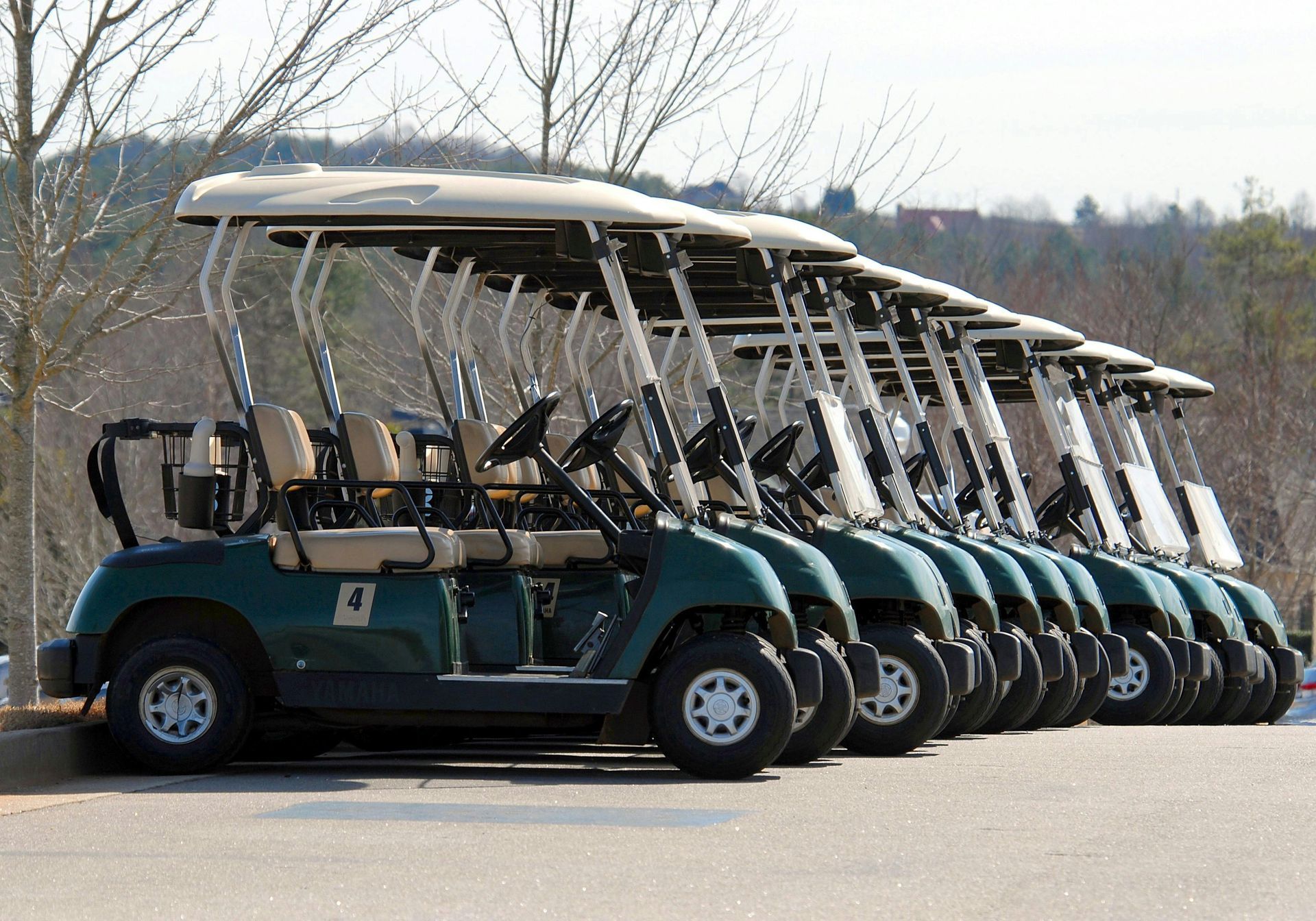
For professional athletes, including international golfers competing in the United States, success is measured by more than just trophies and rankings. Sponsorships, endorsements, and personal branding have become essential revenue streams. But when an athlete is in the U.S. on a temporary visa—such as a P-1A or O-1—there are important legal limits on what kinds of marketing and branding activities they can lawfully engage in. Athlete Visas and Work Authorization Basics The P-1A visa (for internationally recognized athletes) and the O-1 visa (for individuals with extraordinary ability) both grant permission to work in the U.S., but only within the scope of the activities described in the visa petition. For a golfer, that usually means playing in tournaments, participating in practices, and attending official events. If the petition includes promotional appearances or media engagements, those are allowed—but anything outside of those listed activities can raise legal issues. Marketing Activities Must Be Tied to Athletic Work Branding activities—such as photoshoots, commercials, autograph signings, or sponsored social media campaigns—are only permitted if they are clearly and directly related to the athlete’s primary role as a competitor. For example, if a golfer is paid to appear in an ad campaign while in the U.S. and that campaign is listed in their visa paperwork, it’s legal. But if a new opportunity arises after the visa is issued—and it wasn’t included in the original petition—that gig could technically be considered unauthorized employment. Endorsements and Ambassadorships: A Legal Gray Area Sponsorship deals are common in golf, with players often acting as brand ambassadors for apparel, equipment, and lifestyle products. While endorsements that are part of a pre-approved itinerary or employer relationship may be permissible, separate marketing contracts with third parties may require a new visa filing or an amendment. O-1 visa holders typically have more flexibility in this area, especially if their visa was petitioned by an agent who included a broader range of activities. P-1A visa holders, on the other hand, are more tightly bound to the terms of their contract with the petitioning employer or tour. What About Social Media Income? Athletes with large social followings may earn revenue through sponsored posts and affiliate marketing. However, if these deals are executed while the athlete is physically in the U.S., they may be treated as work under immigration law—even if the brand is foreign or the income is deposited abroad. This is a common pitfall, and many athletes unknowingly violate visa terms by monetizing their online presence without proper authorization. Penalties for Unauthorized Commercial Activity If an athlete engages in marketing or branding work outside their visa's scope, it can be seen as a breach of visa conditions. Consequences may include visa revocation, fines, denial of future visa applications, or even removal from the country. These outcomes can severely impact a golfer’s career trajectory, sponsorship relationships, and eligibility to compete in the U.S. in the future. The Role of Legal Advisors and Tour Agents Because these rules are complex and often dependent on how the visa petition was structured, athletes are strongly advised to consult with immigration attorneys or agents before signing on to new sponsorship or branding deals. Major tours like the PGA or LPGA often assist players with understanding what’s allowed under their current visa—but the responsibility ultimately lies with the athlete to stay compliant. Branding With Boundaries Athlete visas in the U.S. open the door to incredible opportunities—but also come with strict boundaries. For golfers looking to grow their personal brand through marketing and sponsorship, understanding the legal limits is essential. As the business side of golf continues to grow, visa compliance needs to evolve alongside a player’s commercial ambitions. Staying on the right side of the law ensures athletes can keep swinging—both on the course and in the marketplace.

For international golfers aspiring to compete in the United States, navigating the visa process is an essential part of their professional journey. But a common question arises, especially among up-and-coming players: Are golfers legally required to have an attorney or immigration expert to handle their visa applications? The short answer is no—legal representation is not required. However, in many cases, it’s strongly advised. Not Legally Required, But Highly Recommended U.S. immigration law does not mandate that athletes—golfers included—retain legal counsel to apply for a visa. Players can technically file visa petitions themselves or through a team representative, manager, or sponsor. However, given the complexity of visa categories like the P- 1A (for internationally recognized athletes) or O-1 (for those with extraordinary ability), the stakes are high and the rules are strict. One mistake in paperwork or a misunderstanding of eligibility criteria can lead to delays, denials, or even bans from entering the country. Why Legal Support Matters in Golf Golfers, especially those participating in PGA, LPGA, Korn Ferry, or amateur circuits, often face a full schedule of travel, media commitments, and performance pressure. Keeping up with U.S. immigration timelines, supporting documentation, and embassy protocols is rarely a top priority—nor should it be. Attorneys who specialize in sports immigration law can streamline the process, helping golfers secure and maintain the right visa without interruptions to their season. What Legal Representatives Actually Do An immigration attorney doesn’t just fill out forms. They help determine the most appropriate visa category, build the evidence portfolio (including letters of recommendation, performance records, and sponsorship deals), and anticipate legal issues before they arise. For elite golfers seeking an O-1 visa, for instance, legal experts ensure that they meet the stringent extraordinary ability threshold — a task that often involves carefully framing a player's achievements for legal interpretation. Who Usually Pays for Legal Representation? The cost of legal services is typically covered by the golfer themselves, their management team, or a sponsoring tour organization. In some cases, high-profile players may receive support from their tour (such as the PGA or LPGA) or a corporate sponsor. For lower-ranked players without the same financial backing, this can be a significant hurdle—making access to legal expertise a matter of equity as well as efficiency. When Skipping Legal Help Becomes Risky While it might seem tempting to save money and manage the process alone, the risks of going without legal representation grow with the complexity of the situation. If a golfer is switching visa types, has had past immigration issues, or is applying under tight timelines, having a knowledgeable legal advisor is not just helpful—it’s essential. The U.S. immigration system can be unforgiving, especially in high-profile or high-pressure cases. Not Required, But Often Essential Golfers are not legally required to hire an immigration attorney—but choosing to go it alone can be risky. In a career where one missed tournament can mean lost earnings, ranking points, or media exposure, ensuring visa compliance through legal representation often becomes an investment in long-term success. As golf continues to grow as a truly global sport, smart legal planning will be just as important as swing mechanics and course strategy.
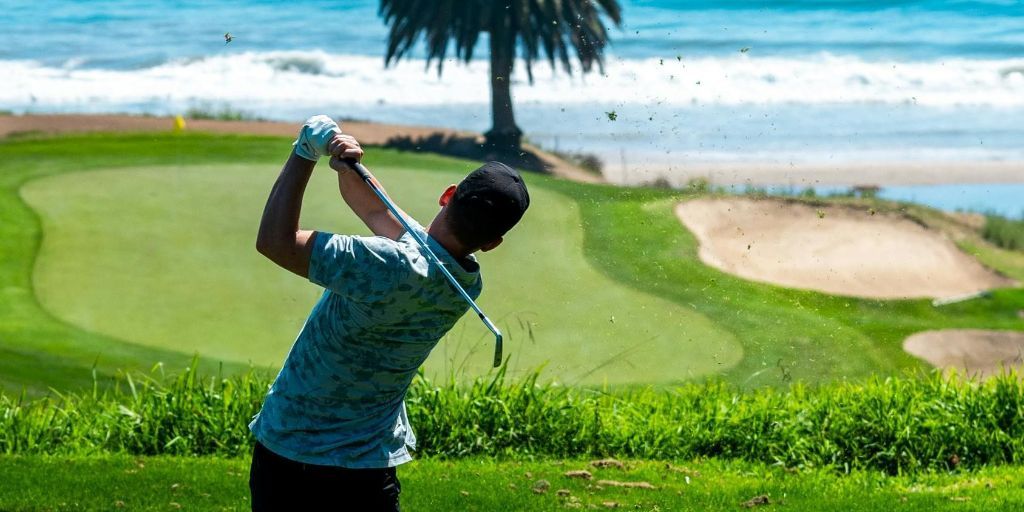
The United States is a global hub for golf, with top-tier training facilities, world-class coaches, and elite amateur competitions. If you're an amateur golfer hoping to play or train in the U.S., your visa pathway will differ from professional athletes—especially those using the P-1A sports visa, which is limited to internationally recognized professionals. So, what are your options as an amateur golfer? Let’s break it down. One of the most common visas for amateur golfers is the F-1 student visa . This visa is ideal for those planning to study full-time at a U.S. high school, college, or university. It also permits participation in official school athletic programs such as NCAA golf, and allows students to train at golf academies that combine intensive athletic training with a full academic curriculum. To qualify, applicants must be accepted into a SEVP-approved institution, demonstrate proof of sufficient financial resources to cover tuition and living expenses, and show intent to return to their home country upon completing their studies. The F-1 visa is best suited for junior golfers enrolled in high school or college, as well as those attending golf-focused sports academies. For golfers visiting the U.S. for short-term activities, the B-1 (business) or B-2 (tourist) visa may be more appropriate. These visas are designed for temporary visits and allow participation in amateur tournaments (provided there’s no substantial prize money), attendance at training camps or clinics, and meetings with coaches or campus tours. However, the activities must not involve employment or compensation, and any training must be incidental to the visit—not part of a long-term or formal program. These visas are well-suited for amateur golfers invited to play in events or those embarking on brief trips to build skills or explore athletic opportunities. The J-1 exchange visitor visa is another option, primarily used for cultural and academic exchange programs. This visa supports participation in golf-related camps or internships that are part of structured cultural or educational programs. Applicants must be sponsored by a U.S.-designated exchange visitor program, carry medical insurance, and have a clearly defined educational or cultural objective for their stay. This visa is ideal for international golfers attending organized summer camps or taking part in short-term development programs that incorporate a cultural exchange component. On the other hand, the P-1A visa is reserved strictly for professional athletes with international recognition and is not suitable for amateurs. Unless you have officially turned professional, hold contracts or sponsorships, or have a proven record in internationally sanctioned events, you will not meet the criteria. Even highly competitive amateur golfers must be treated as amateurs under immigration rules, regardless of their skill level. To improve your chances of a successful visa application, it’s important to be transparent about your amateur status and choose the visa that truly aligns with your purpose of travel. Applicants should gather strong documentation—such as school acceptance letters, tournament invitations, training schedules, and coach recommendations. Demonstrating ties to your home country, like a return ticket, family commitments, or ongoing education, is also vital to showing that your visit is temporary. Additionally, avoid any arrangements that could be interpreted as employment, such as receiving prize money or financial compensation. In conclusion, amateur golfers with aspirations of training or competing in the United States have several visa pathways available. Whether your journey involves academic studies, a training camp, or a short-term competition, selecting the right visa and staying within its guidelines is crucial. When in doubt, it's always wise to consult with an immigration professional to determine the best route for your specific situation.
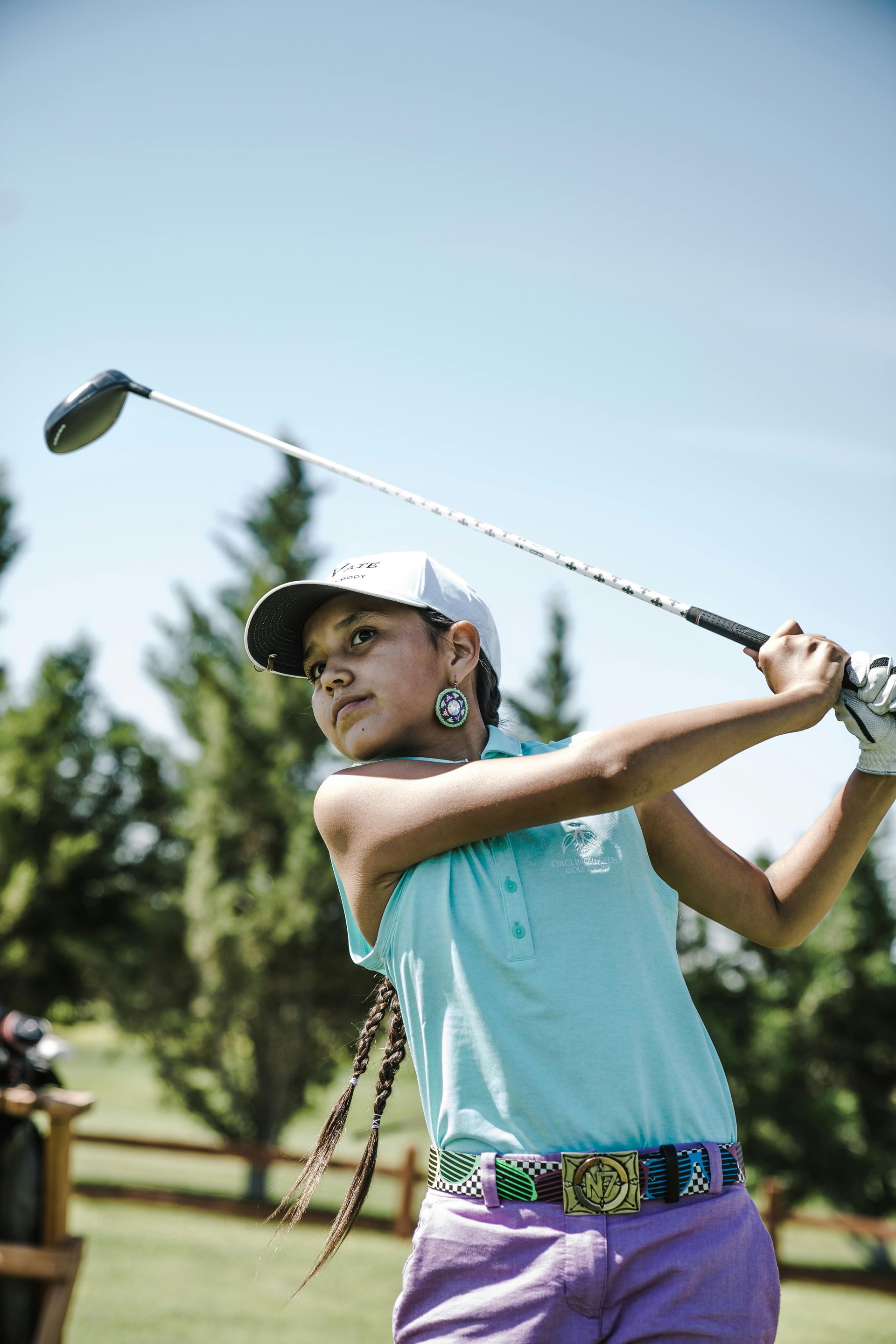
T he United States is a top destination for golfers from around the globe. It offers access to elite tournaments, world-class coaching facilities, and prestigious academic institutions. If you're planning to travel to the U.S. for golf-related purposes, whether to compete, train, or study, your eligibility will depend on several key factors. These include your playing status (amateur or professional), the reason for your visit, and which type of visa aligns with your goals. Professional Golfers: Playing in U.S. Tournaments If you're a professional golfer — meaning you earn money through competition, sponsorships, or contracts — you must enter the U.S. with a visa that permits income-earning activities. The most suitable option is the P-1A visa , intended for internationally recognized athletes. To qualify for a P-1A visa, you must have an established international ranking, such as being in the top 300 of the Official World Golf Rankings (OWGR) or the Ladies European Tour (LET). You should also be under contract with a U.S.-based tour like the PGA, LPGA, or Korn Ferry Tour or be invited to compete in a major tournament like the U.S. Open. This visa requires a U.S. sponsor — often a tour organizer or agent — and supporting documentation that proves your global recognition, including rankings, media coverage, and endorsements. The visa is initially valid for up to five years and can be extended to a maximum of ten years. Amateur Golfers: Studying or Competing Without Pay Amateur golfers, who do not receive income for their play, often travel to the U.S. for educational purposes, training, or non-professional competition. Their visa options are more limited, but several pathways are available depending on the nature of their stay. The F-1 student visa is ideal for amateur golfers who plan to study in the U.S. while playing on school-affiliated teams. This includes students accepted into high schools, universities, colleges, or golf academies. To be eligible, you must attend a school certified by the Student and Exchange Visitor Program (SEVP), show proof of financial support, and demonstrate that you intend to return home after completing your studies. The F-1 visa is valid for the duration of the academic program. For short-term visits related to golf, such as amateur tournaments or private coaching sessions, the B-1/B-2 visitor visa is the most appropriate. This visa is designed for non-professional activities and does not permit prize money or income. You must clearly show that your visit is temporary and that you will return to your home country afterward. The B-1/B-2 visa is typically valid for up to six months and may be extended in certain cases. If you’re planning to participate in a golf-related exchange or training program — such as a summer camp or youth sports initiative — the J-1 exchange visitor visa may apply. This visa requires sponsorship by an approved U.S. program and must have an educational or cultural purpose. You’ll also need to provide proof of insurance and other supporting documentation. The J-1 visa usually lasts between three and twelve months, depending on the program. Activities That Are Not Allowed Golfers must be careful not to misrepresent their activities or intentions when applying for a U.S. visa. You may be denied entry if you try to compete professionally on a visitor visa, receive income or prize money without proper authorization, or fail to provide the required documentation (like invitation letters or proof of enrollment). Additionally, insufficient ties to your home country — such as a lack of property, family, or employment — can result in visa denial. Summary of Eligibility In short, professional golfers aiming to compete in the U.S. must apply under the P-1A visa and provide evidence of their international status. Amateur golfers attending academic institutions should apply for the F-1 visa, while those participating in short-term events or training may be eligible for the B-1/B-2 visa. For educational exchanges or sports training camps, the J-1 visa is appropriate, assuming program sponsorship and other requirements are met. Final Tips for Golfers Whether you're a young amateur or an internationally ranked pro, planning to come to the U.S. for golf involves more than just tournament registration or booking a flight. You must clearly identify your status, understand the purpose of your visit, and apply for the correct visa. Make sure all your documentation is complete and accurate. To avoid complications or delays, it's highly recommended to consult with an immigration attorney or advisor familiar with sports visas. Following the proper process will allow you to take full advantage of everything the U.S. golf landscape has to offer — from education and training to world-class competition.





